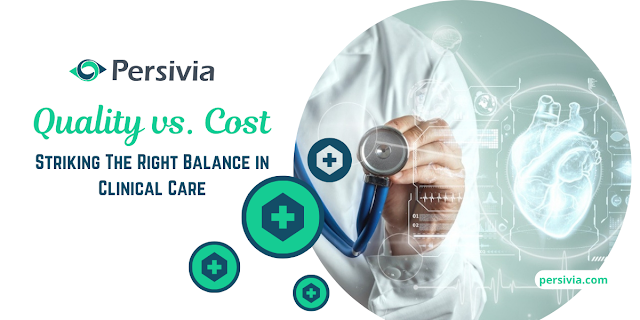Delivering excellent healthcare can feel like navigating a maze. On one path lies the best care, with advanced treatments and personalized attention. On the other, lies the concern of affordability, ensuring that these treatments are accessible to everyone. Finding the right path requires a thoughtful approach - that's where clinical quality management comes in.
CQM is a set of practices designed to ensure you receive high-quality care while considering costs. Think of it as a roadmap for your doctor's office, helping them:
- Track
your progress
- Identify
areas for improvement
- Continuously improve
Technology As A Helping Hand
Technology plays a vital role in effective Clinical Quality Management. Electronic health records act as a secure digital record of your health history. These records allow doctors to:
Analyze your progress more easily: With EHRs, information is readily available, making it easier for doctors to monitor your health and assess the effectiveness of your treatment.
Collaborate with other
providers: EHRs enable seamless
information sharing between healthcare professionals involved in your care.
This ensures everyone has a complete picture of your health history and can
work together effectively.
Quality Reporting: Sharing data on quality measures allows for transparency and accountability. Patients can compare providers and choose the one that best suits their needs. Additionally, some insurance companies reward doctors who consistently deliver high-quality care.
Interoperability: Doctors can easily access your information, regardless of where you received previous care. This promotes collaboration and ensures everyone involved in your care has a complete picture of your health.
Balancing Quality & Affordability
Implementing CQM can be resource-intensive. Here's how doctors strive to find the right balance:
Prioritizing high-impact measures: Not all quality measures are created equal. Doctors prioritize those that have the biggest impact on your health and can save money in the long run, such as preventing unnecessary hospital stays.
Streamlining processes: Technology plays a key role here, allowing for more efficient data collection and reporting, and freeing up doctors' time and resources.
Collaboration is key: Doctors, hospitals, and insurance companies working together can develop cost-effective Clinical Quality Management strategies.
Investing in Your Health: The Long-Term Benefits
While there may be initial costs, the long-term benefits are substantial:
Improved health outcomes: With a focus on evidence-based practices, it translates to better treatment outcomes and fewer complications for you.
Reduced healthcare spending: By preventing unnecessary procedures and hospital stays, CQM can lead to lower overall healthcare costs.
Enhanced patient experience: Knowing you're receiving high-quality care can significantly improve your satisfaction with the healthcare system.




No comments:
Post a Comment
Please do not enter any spam link in the comment box